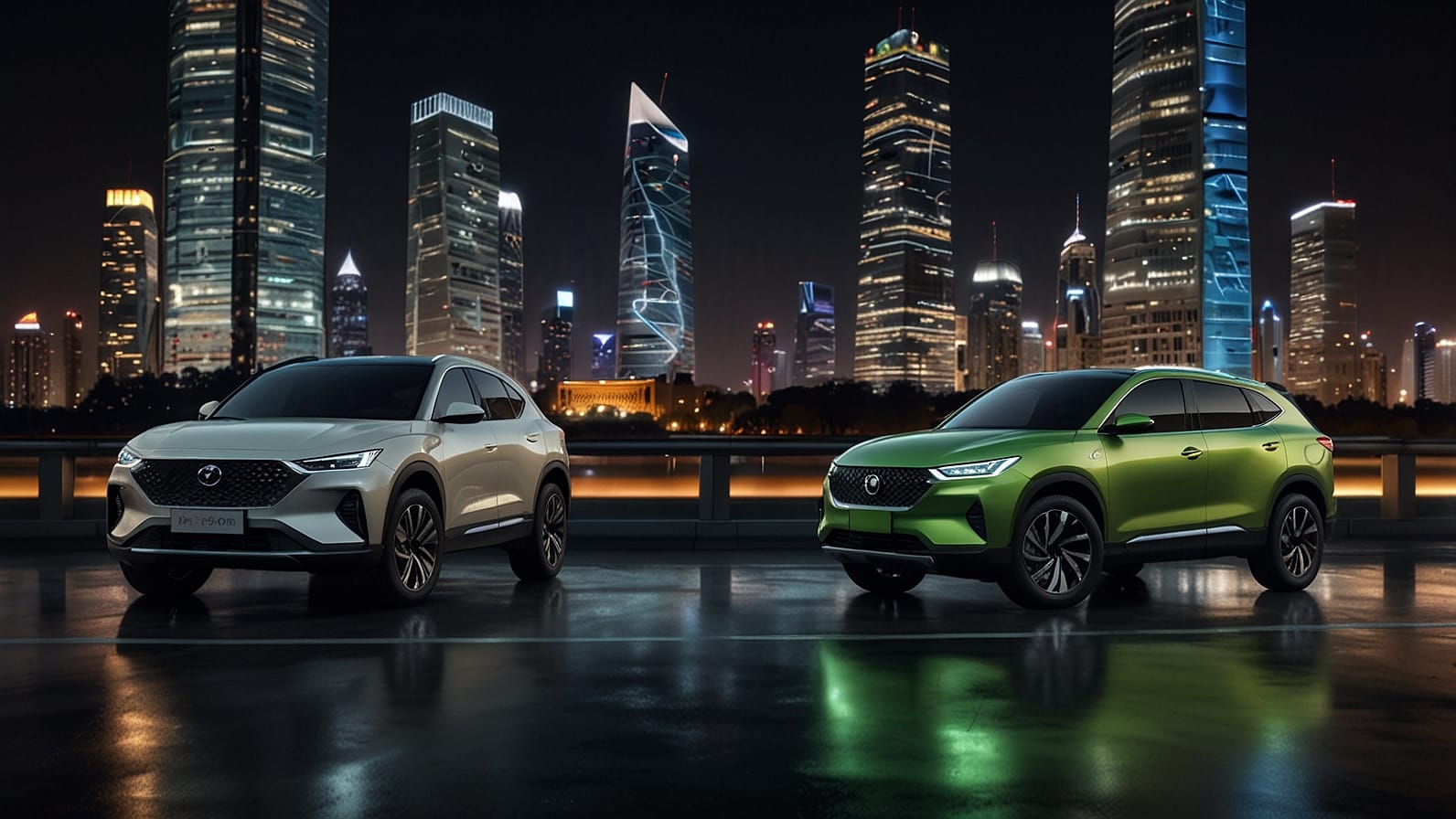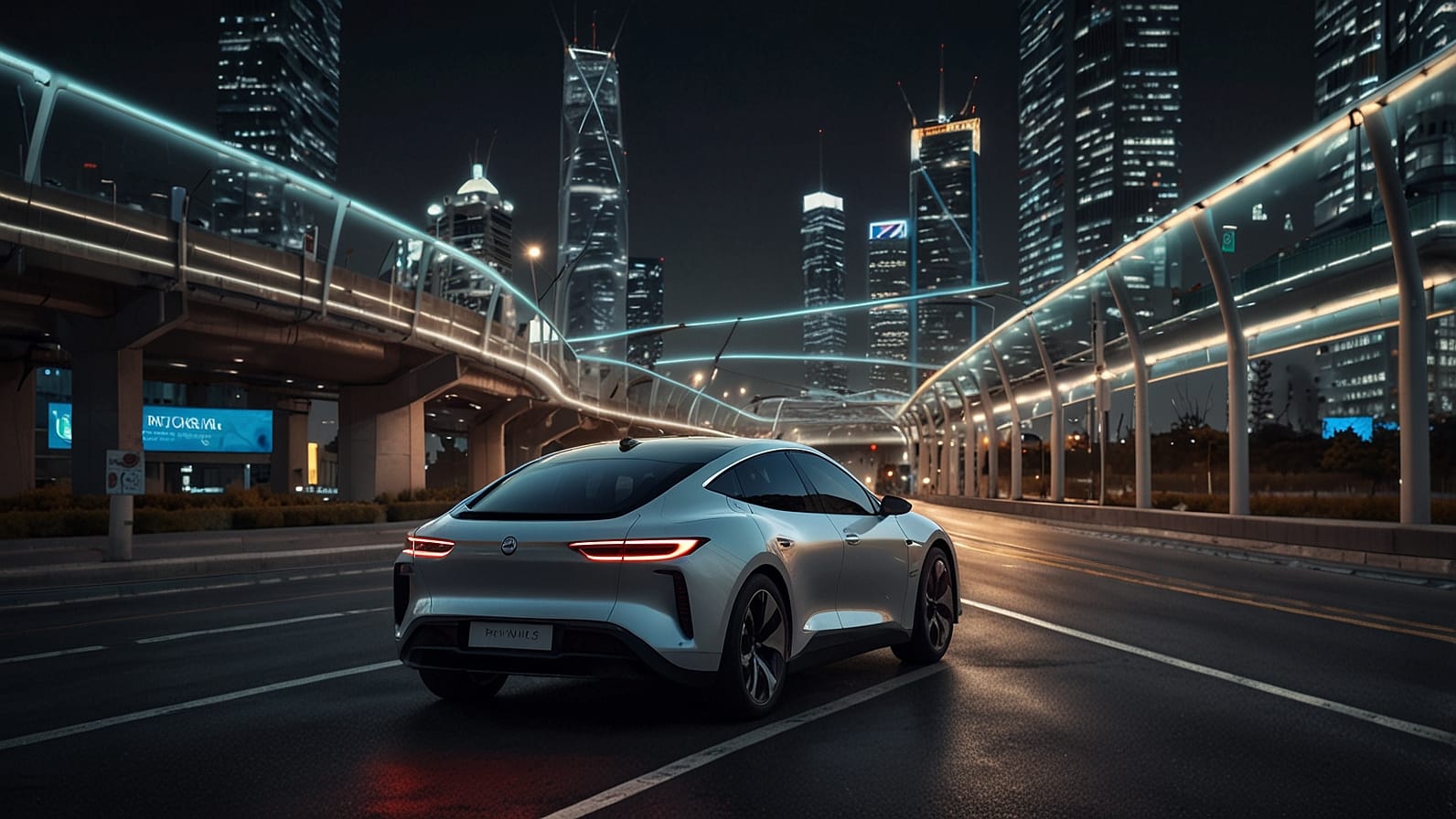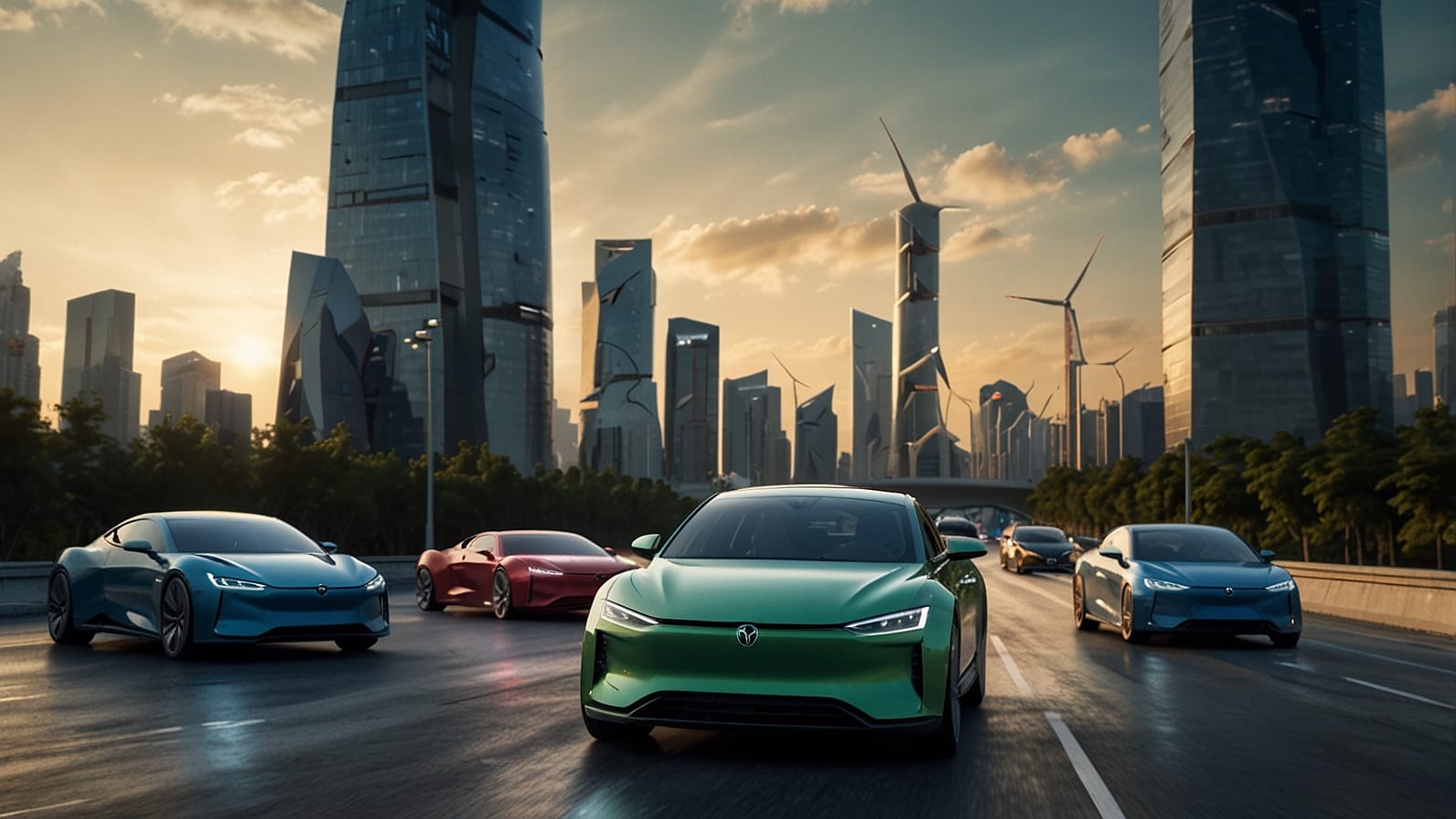In recent years, the automotive industry has witnessed a significant shift toward electric vehicles (EVs), and one of the most prominent trends in this shift is the rapid rise of electric SUVs, particularly from Chinese manufacturers. Chinese electric SUVs are gaining popularity not only within China but also in international markets, offering a unique blend of cutting-edge technology, affordability, and sustainability. But what exactly is driving the growing popularity of Chinese electric SUVs? Let’s explore the factors behind their success.
1. Affordable Luxury and Advanced Features
Chinese automakers like NIO, XPeng, BYD, and Li Auto are producing electric SUVs that combine luxury and advanced technology at a much more affordable price point than many Western competitors. These vehicles are packed with features that appeal to tech-savvy consumers, including large infotainment screens, autonomous driving capabilities, AI-powered voice assistants, and high-end interior materials.
For example, NIO’s flagship SUV, the ES8, offers a luxurious, spacious interior with premium leather seats, a digital cockpit, and advanced driver-assistance systems. Similarly, XPeng’s G9 SUV combines cutting-edge technology with a sleek design at a price far lower than similar models from global brands. The affordability of these vehicles, without compromising on quality or features, has made them highly attractive to a wide range of consumers.
2. Focus on Range and Performance
One of the key factors in the popularity of electric SUVs is their focus on range and performance. Chinese automakers have invested heavily in battery technology, enabling their electric SUVs to achieve impressive ranges that are suitable for both urban commuting and long-distance travel.
For instance, the XPeng G9 offers a range of up to 702 kilometers (436 miles) on a single charge, which is comparable to some of the best electric vehicles globally. Additionally, Chinese electric SUVs are equipped with powerful electric motors that deliver impressive acceleration and performance. BYD’s Tang EV, for example, can go from 0 to 100 km/h (0-62 mph) in just 4.3 seconds, making it one of the quickest SUVs in its class.
This combination of long-range capability and powerful performance has made Chinese electric SUVs an appealing option for families and individuals who want the flexibility to drive long distances without worrying about frequent charging.
3. Eco-Friendly and Sustainable
As concerns about climate change and environmental sustainability grow, more consumers are looking for eco-friendly alternatives to traditional gasoline-powered vehicles. Chinese electric SUVs offer a greener solution, producing zero tailpipe emissions and contributing to a reduction in air pollution, particularly in densely populated cities.
Chinese automakers are also committed to sustainability throughout the production process. Many companies are incorporating renewable energy sources into their manufacturing plants and recycling materials wherever possible. For instance, BYD, a leader in electric vehicle production, not only manufactures electric cars but is also heavily involved in the production of solar panels and energy storage solutions, showcasing its dedication to a cleaner future.
This focus on sustainability resonates with environmentally conscious consumers, who see Chinese electric SUVs as a responsible choice for reducing their carbon footprint.
4. Battery Technology and Innovation
One of the most significant advantages Chinese automakers have in the electric SUV market is their leadership in battery technology. China is home to some of the world’s largest battery manufacturers, including CATL (Contemporary Amperex Technology Co. Limited), which supplies batteries to many major global automakers.
Chinese electric SUVs often come equipped with advanced battery systems that not only offer extended ranges but are also safer and more efficient. For example, BYD’s “Blade Battery” technology is designed to improve battery safety and longevity while offering better energy density. This innovation ensures that Chinese electric SUVs remain competitive in terms of both performance and safety.
In addition, battery-swapping technology, pioneered by companies like NIO, has revolutionized the EV experience. Instead of waiting for an electric SUV to charge, drivers can simply swap out a depleted battery for a fully charged one in a matter of minutes at designated battery swap stations. This innovation addresses one of the biggest concerns for potential EV buyers—charging time—and makes electric SUVs even more practical for everyday use.
5. Government Support and Incentives
The Chinese government has played a crucial role in the rise of electric vehicles, offering generous subsidies and incentives for both manufacturers and consumers. These policies have accelerated the development and adoption of electric SUVs within China, making them more affordable for the average buyer.
In addition to financial incentives, the Chinese government has invested heavily in the development of charging infrastructure, ensuring that electric vehicle owners have easy access to charging stations throughout the country. This widespread infrastructure is one of the reasons why electric SUVs have become so popular in China.
As Chinese electric SUVs gain popularity globally, other countries are also introducing incentives for EV buyers, further boosting the appeal of these vehicles. For example, in many European countries, consumers can benefit from tax rebates, reduced registration fees, and exemptions from road taxes when purchasing an electric vehicle, making Chinese electric SUVs even more competitive in international markets.
6. Global Expansion of Chinese Brands
While Chinese electric SUVs have gained significant traction in their home market, many Chinese automakers are now expanding their reach to international markets. Brands like NIO, BYD, and XPeng are entering Europe and other regions, offering their electric SUVs to consumers looking for high-quality, affordable electric vehicles.
This global expansion is being supported by international partnerships, new production facilities outside of China, and a focus on meeting stringent safety and environmental standards in other countries. As these brands continue to grow, they are becoming serious competitors to established global automakers like Tesla, Volkswagen, and Ford.
Conclusion
The rise of Chinese electric SUVs is a testament to the country’s leadership in electric vehicle innovation and production. With their combination of affordability, advanced technology, long-range performance, and sustainability, Chinese electric SUVs are becoming a popular choice for consumers worldwide. As Chinese automakers continue to innovate and expand into new markets, their electric SUVs are set to play a central role in the future of the global automotive industry.
Whether you’re in the market for a family-friendly SUV or a tech-packed, eco-conscious vehicle, Chinese electric SUVs offer something for everyone. With the rise of these impressive vehicles, the future of mobility is looking greener, smarter, and more accessible than ever.



